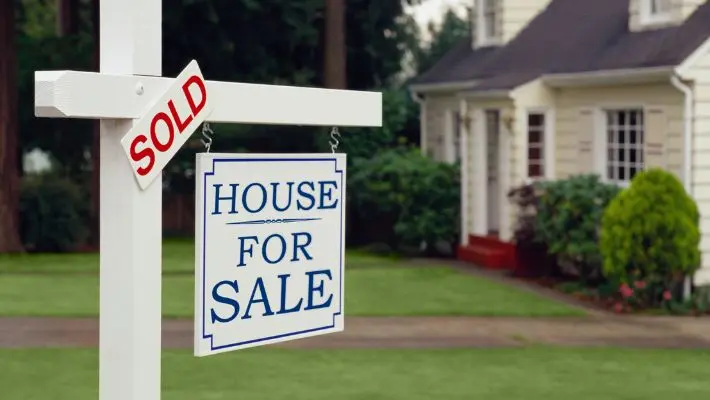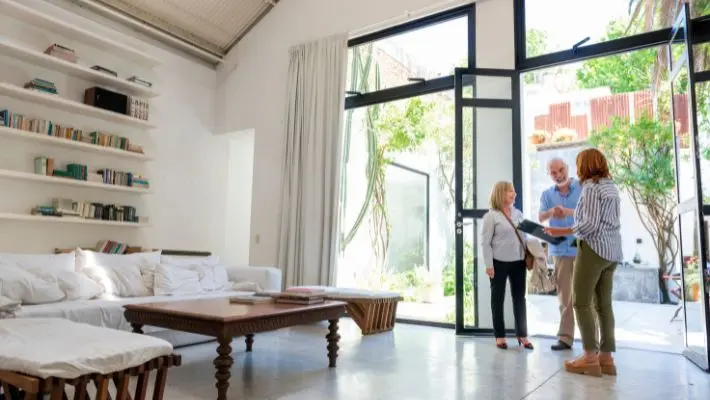
Is a Rent-Back Agreement Right for You?
If you’re a seller, you’ll want to learn about what a rent-back agreement entails to see if it’s the right choice for you.
You’ve successfully completed the process of selling your home and completing the closing. Despite being ready to vacate and hand the keys to the buyer, there are circumstances that can arise where you, as a seller, must continue living in the home that you’ve just sold.
In these unique situations, a rent-back agreement can be tremendously helpful. And, thankfully, a rent-back agreement can be helpful not only for you, but also for the buyer of the home.
What is a Rent-Back Agreement?
A rent-back agreement is an agreement reached between a buyer and a seller when the seller still needs to occupy the home.
Common reasons that a rent-back agreement may be something to consider as a seller may include:
- Delays in moving to your new home, such as construction disruptions or inclement weather if you must travel
- Your child would benefit from completing the school year in their current district
- You’ve negotiated a period of time before departing your current job that has exceeded timeline expectations

While every situation is different, anything that can cause a delay into leaving the home is cause to consider a rent-back agreement. This is especially important if another place to live temporarily is not readily or easily available to you.
How Does a Rent-Back Agreement Work?
It’s important to try and assess the possibility of enacting a rent-back agreement before the sale of the home is completed, though predicting this need may not always be possible.
Despite completing all of the necessary paperwork to close the sale of the home, it’s crucial that a legally-binding contract is drawn up to define the terms of the rent-back agreement.
A rent-back agreement is similar to a rental agreement. From a logistical perspective, a rent-back agreement is typically managed from the perspective of the buyer operating in the capacity of a landlord, while the home seller is the tenant.

Once a rent-back agreement is decided upon as the best choice for both parties, three of the most critical terms must be defined:
- The length of the rent-back agreement: Typically lasting no more than 60 days, it’s imperative that the buyer and seller agree upon the length of time that the rent-back agreement will take place, as well as when it will end.
- The rate of the agreement: The seller must pay the buyer to live in the home. The rate is typically defined by market prices of comparable homes and charged on a daily basis.
- Utility payments: Because the seller is living in the home and using utilities, the contribution of the seller to utility payments should also be clearly defined and agreed upon.
It’s also a good idea to decide upon and define terms for what should happen in the event of repairs, who pays the homeowner’s insurance, and other issues that may arise.
If you’re unsure, your professional real estate agent can help you define these terms clearly. Still, it’s preferred to have the terms and agreement reviewed by a real estate attorney to ensure nothing is missed, and that the best interest of both parties is fairly and adequately protected.
How is a Rent-Back Agreement Helpful?
A rent-back agreement is helpful for both buyers and sellers alike, despite typically being prompted by the seller.
For buyers, it’s an opportunity to make extra cash. Because buyers are essentially charging rent, the period of a rent-back agreement can provide the buyer with additional funds. These funds can then be used for things like upgrades, repairs, or things as simple as general funds to get settled in their new home, like groceries or decor.
On the other hand, for sellers, the benefits are clear. It provides a contingency plan, as well as a place to live. This prevents the hassle and stress of finding a temporary living situation, and the accompanying expenses that can arise as a result.
Is a Rent-Back Agreement Right for Me?
If your circumstances for your living situation after you sell your home are less-than-ideal and will add time to your departure from the property, a rent-back agreement may be the right choice for you.

Discuss this in-depth with your real estate agent. If you have the foresight for the need to remain in the home before completing the sale, consider adding it to the contingencies in discussion with the buyer.
If you’re ready to have hands-on expertise for every possibility of the home selling process, RealEstateAgents.com can help you get in touch with top agents in your area to help. Connect with them today.






